The Academic Approach To DFC Mastery
~7 min read
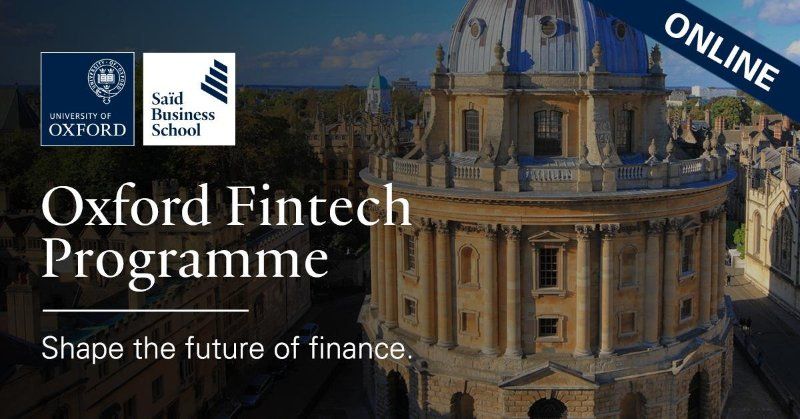
Perhaps unbeknownst to those on the outside looking in, the digital finance and commerce (DFC) ecosystem is a multilayered, interdisciplinary world where international business, finance, technology, development, regulation, telecommunications and other subjects intersect in difficult-to-predict ways. These intersections demand that DFC practitioners possess working knowledge of the various topics which comprise the space, and for rookies, this means that no matter their background, they will probably need to shore up their weaker areas of knowledge before the DFC space as a whole becomes clear to them.
A highly technical person, for instance, may feel perfectly at home researching blockchain, but lost when it comes to discussing the challenges of financial inclusion. Someone with a background in venture capital, on the other hand, can evaluate a start-up’s balance sheet with their eyes closed but may lack the global awareness to know the difference between Equatorial and Papua New Guinea. Aware of this disconnect and the expansiveness of relevant variables, institutes and academies are nominating themselves as the marshals that will lead DFC knowledge seekers to professional graduation.
A Gravy Train?
So: what is the logical point of entry into the DFC space? First things first, the specific talent needs of the market are changing. Fintech — defined as "firms that focus on technology-enabled innovation in financial services that could result in new business models, applications, processes or products" — is in the driver’s seat when it comes to DFC-related job creation. This month’s report by Robert Walters observed that in London in 2018, fintech hiring was up 61% year-over-year.
That is particularly significant considering that of the world’s 29 fintech “unicorns," seven are based in London (including global payment players Revolut and Transferwise, who boast 759 and 1,086 employees on LinkedIn, respectively). Hiring, it seems, has followed the money; worldwide, total investment in fintechs soared from $50.8 billion in 2017 to $111.8 billion in 2018 (according to KPMG). And it’s not just big fish swallowing guppies; this figure was buoyed by a handful of “mega” deals with global implications (among them FIS’s $12.9b acquisition of Worldpay, Paypal’s $2.2b scooping up of iZettle and Ant Financial’s elephantine $14b Series C funding round).
While these deals mean that the DFC space is consolidating somewhat, it also represents an eagerness on the part of established financial services firms (in developed and emerging markets alike) to both broaden their footprint and give new technology a try. KPMG's research suggests that these two efforts could work hand-in-hand, with emerging markets becoming friendlier to new tech deployments, and innovative tech in turn improving the business viability of new markets.
A Seller's Market
If DFC is growing, that means it is a seller’s market from the point of view of newcomers, right? When better to join an industry than during a bullish phase? Job seekers browsing LinkedIn will find, for instance, 98 worldwide job openings at Transferwise, plus 522 at Revolut and 300 at e-commerce standout Stripe. Though these firms are large by fintech standards, none of them have more than 2,000 employees, so hiring at the aforementioned scale represents a significant investment in new talent.
Importantly, the positions they are seeking to fill suggest that these firms have geographic expansion on their minds. In the case of Transferwise, Stripe and Revolut, the global sophistication of the roles on offer suggests that these firms are upping headcount to fuel an ambitious push into new markets. These are a few (real) roles currently available with these firms, per LinkedIn job postings:
- Head of Banking (US), Head of Banking (Russia) (the same company is recruiting for both)
- Sanctions Compliance Program Lead
- Customer Support Specialists (Thai, Spanish, German, Cantonese, English, French, Czech, Japanese, Hindi, Polish, or Portuguese speakers wanted)
Other open positions range from business development to product development to operations, from entry all the way up to the C-suite, and spread out as far as Tallinn, Singapore, and Seattle. For what it’s worth, IT comprises fewer than one-third of the new roles in fintech, though that number appears to be on the rise, and if trends in London are any indication of which way the worldwide wind is blowing, IT (which encompasses training, security, support, analysts, and development/ engineering) will make up an increasing portion of the fintech workforce as the industry matures. RW suggests that “this is largely driven by international expansion as fintechs look to compete on the global stage.” Obviously, fintech firms place greater emphasis on IT than incumbent financial service providers do, so more of their workforce falls under IT; this also means, however, that a grasp of technical concepts will likely become even more valuable as both fintech and incumbent firms compete for the same global talent pool.
Catching Up & Keeping Up
Given these shifting market forces and the complexity of the subject matter in question, how does one prepare for a career in DFC? A first step might be to consider one of the specialized organizations who deliver crash-courses in fintech, frequently in partnership with established universities like Oxford or Harvard.
Courses are delivered online, in “night school” format, or an all-day or multi-day bootcamps. Many grant a certificate upon completion of the program, and some even offer condensed, modular courses focusing on a particular technology or topic in the space. While an online or in-person digital finance course may ultimately prove too broad to address an individual’s specific needs or too introductory to translate to a command over the industry, the fact remains that many courses are run by expert organizations with deep knowledge of DFC. To name a few:
This digital-focused course covers a new topic during each of its twelve weeks, ranging from digital payments to safety & security to financial inclusion. To be eligible, students must hold an undergraduate degree or demonstrate minimum 5 years experience working in digital finance.
This course offers management and leadership training with a concentration on financial inclusion and impact investing. It’s designed for executives, managers, investors, entrepreneurs, policymakers and others who would find value in a leadership-focused approach to DFC.
This course covers a range of topics falling under the umbrella of innovation within DFC. The disruptive potential of various kinds of tech is emphasized, including fintech, regtech and proptech. The course is open-enrollment and welcomes anyone with an interest in disruptive tech.
This course is an overview of of electronic payments in the U.S. It concentrates on the merchant acquiring side of the payments space and seeks to enable productive communication with other members of the industry.
This course intends to teach participants about the “transformation happening in finance,” and is meant as a foundation to support further learning about DFC. This course may be most suited to newcomers who wish to have an overview of DFC without spending too much time on any particular facet of the space.
Given the multidisciplinary and constantly-evolving scope of DFC, students who use these formalized courses may find the content useful as a jumping-off point, but not robust enough to bring their mastery up to speed with the needs of the market. For example, someone with a background in finance who needs to understand the technical side of digital payments for a remittances-based project is unlikely to find a course which covers this exact scenario. Or, what about an individual who is put in charge of developing a compliant, feasible regtech strategy for their firm's entry into a new market? There is no the course that will teach them the A to Z of a project like that.
The courses currently on offer have their respective foci, but DFC roles offer value to organizations in many cases precisely by cutting across these foci. The ability to peceive and analyze the points of intersection between the different provinces of DFC, and to track their evolution, is what makes one an expert. Whether an abbreviated course in the basics can really impart this ability is the big question.
The truth is that no one will become an expert without using a diverse set of resources — including books, blogs, webinars, whitepapers, news and conferences — to fill in their understanding. But even a multipronged strategy can be painfully gradual. Getting up to speed, so to speak, means knowing: what DFC is; what it touches; where it came from; where it is headed; and who is likely to take it there. Ramping up can take between 6 months and a year, for most; following that, it is a matter of keeping one’s finger on the pulse of DFC (perhaps with the help of Mondato’s weekly insights).
Image courtesy Oxford Fintech Programme
Click here to subscribe and receive a weekly Mondato Insight direct to your inbox.

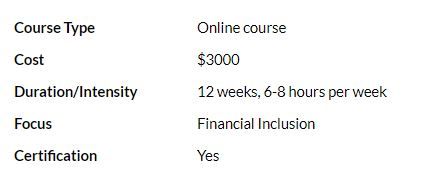
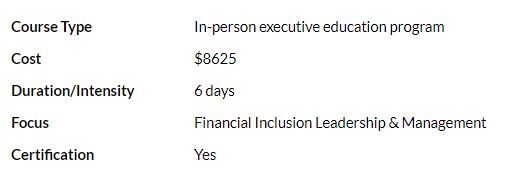
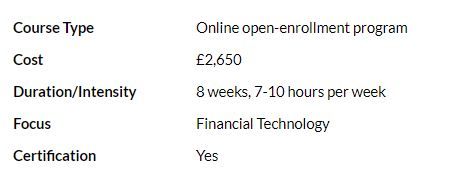
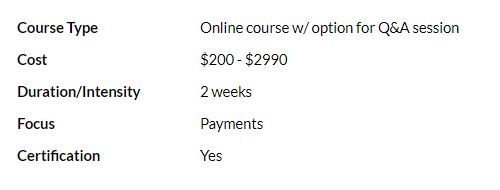

Proof Of Address: The Invasive Species Of KYC
Mondato Summit Africa 2019: Scaling DFC Innovations